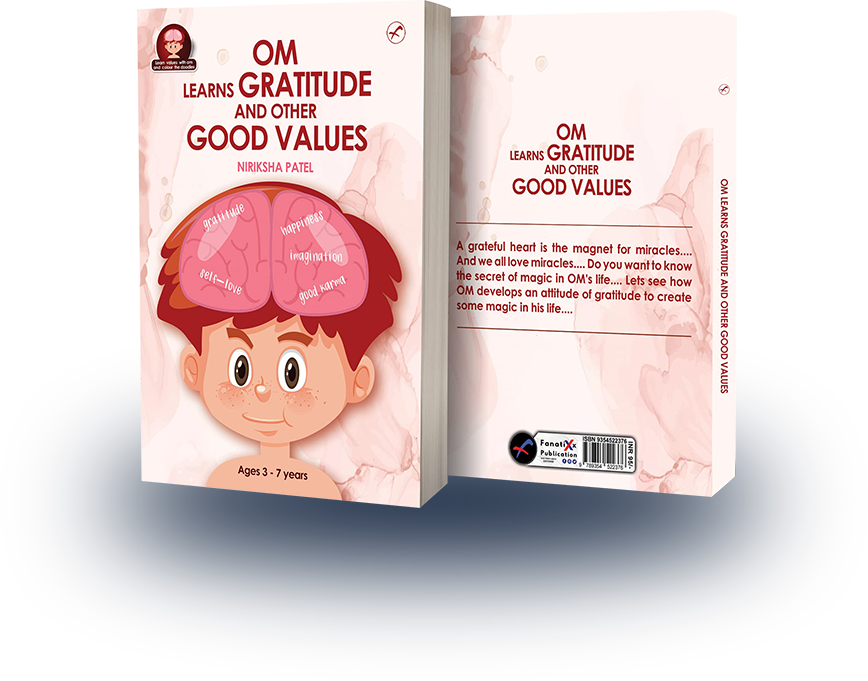Table of Contents[Hide][Show]
“Why can’t I think positive thoughts like them?” Naisha wondered, watching a group of happy friends in the park.
As she sat alone on a nearby bench, Naisha felt somewhat jealous. It wasn’t that she did not want them to be happy; rather, she wanted to know why her mind would just keep on playing the button of negative self-talk.
She was having a bad day as it is, because she had made one silly mistake during a presentation in her office, and although it was 6 hours back, she still cannot forget and forgive herself for that.
“Enough is enough, I want to put an end to this self-inflicted misery” Naisha muttered.
With determination in her heart, she decides to figure out where negative self-talk comes from? and why does she keep getting in her own way?
Let us join Naisha and find out the reasons why she and all of us indulge in negative self-talk, even though we know that it only makes us unhappy.
What is Negative Self-Talk?
Before we dive into Naisha’s journey, let’s understand what actually negative self-talk means.
Think of negative self-talk as your inner critic on overdrive, like a tiny, grumpy roommate in your head.
This not-so-friendly roommate likes to label you when you mess up, saying things like, “You’re terrible at this; you’ll never get it right.”
It’s like having a not-so-nice friend who’s always ready to point out your flaws and make you feel bad about yourself.
Why is it important to understand where negative self-talk comes from?
Understanding where negative self-talk comes from is crucial because it helps you recognize its roots, challenge those origins, and grow stronger.
For example, if you always feel inadequate because of past criticism, acknowledging it can empower you to overcome it.
- Identifying the source of negative self-talk helps you stop blaming yourself.
- It enables you to break the pattern of self-doubt and challenge those thoughts.
- Understanding where it comes from allows for emotional healing and personal growth.
Where Does Negative Self-Talk Come From?
Let us go back to Naisha’s story and find out what are the reasons for her negative self-talk.
1. Early Childhood Experiences
Naisha grew up in a household where her parents constantly compared her to her older sibling, who excelled academically. They often said things like, “Why can’t you be more like your sister?” These early comparisons left her feeling inadequate and triggered her negative self-talk, making her doubt her abilities.
2. Negative Information Consumption
Naisha realized that she had a habit of watching reality TV shows where contestants were harshly judged and criticized by judges. After binge-watching one such show, she found herself replaying those critical comments in her mind, which fueled her self-doubt and negative self-talk.
3. Negative Self-Talk from Others
In middle school, Naisha was teased by her classmates for her appearance. Even though it happened years ago, those hurtful comments still haunted her thoughts, causing her to question her self-worth.
4. Unrealistic Expectations
Naisha wanted to be perfect in school, so when she didn’t get the very best grades, she’d be really hard on herself and feel like she messed up big time. This constant pressure to be the best made her feel really stressed and not good about herself.
5. Perfectionism
Naisha recalled a time when she worked tirelessly on a project at work. Despite her efforts, she received constructive feedback from her manager. Instead of accepting it as an opportunity to learn and grow, Naisha internally criticized herself for not being flawless.
6. Social Media Comparison
Naisha often found herself scrolling through social media and comparing her life to the seemingly perfect lives of her friends and influencers. She would think, “Why can’t I have what they have?” This constant comparison fostered feelings of inadequacy and negative self-talk.
7. Relationship Breakup
After a difficult breakup, Naisha would replay conversations and scenarios in her head, wondering what she did wrong. She would tell herself, “I’m unlovable; that’s why it ended,” which intensified her negative self-talk.
8. Job Rejection
When Naisha applied for her dream job and was rejected, she internalized it as a personal failure. She would say things like, “I’m not good enough for that job,” which eroded her confidence and self-esteem.
9. Physical Appearance
Naisha was constantly bombarded with media images of idealized beauty. She would scrutinize herself in the mirror and think, “I’m not attractive enough,” due to the unrealistic beauty standards perpetuated by society.
10. Critical Peer Group
Naisha used to have a group of friends who were highly critical of each other. They would often make negative comments about each other’s choices, appearance, and even accomplishments.
Being a part of this group led Naisha to internalize their critical voices.
For instance, if she shared a personal achievement, her friends might respond with sarcasm or belittling remarks, causing her to question her worth and fueling her negative self-talk.
As time passed, all these negative experiences started to groove in her mind like a broken record, and she found herself stuck in a loop of pessimistic thinking.
Remember, these struggles aren’t just Naisha’s story. We’ve all faced our versions of these pesky negative thoughts.
It’s time to kick them out and replace them with the cheerful and colorful thoughts of self-love and confidence.
You might also be interested in my blog on: Sarah’s journey of self-discovery in soft skills.
Tips for Dealing with Negative Self-Talk
Naisha went on to break free from the cycle of negative self-talk by taking the following steps:
- Naisha learned to question the accuracy of her negative thoughts instead of accepting them as facts.
- She treated herself with the same kindness and understanding she’d offer to a friend.
- She replaced self-criticism with positive affirmations, reminding herself of her strengths.
- Naisha started practicing meditation every morning for half an hour, this helped her stay present and reduce rumination on negative thoughts.
- She reduced exposure to people, media, or situations that fueled her self-doubt.
- Naisha started setting achievable goals, celebrating small victories along the way.
- Every night Naisha would write about 5 things that are not so good in her life, but she is grateful for them because it helps her learn and grow.
Naisha still has moments when negative thoughts pop up, but she’s now really good at catching them early.
Her life isn’t all rainbows and unicorns, but she’s learned how to make her thoughts more positive.
It’s not a perfect “happily ever after,” but it’s a happy journey where she’s in control, making her life better one thought at a time.
Also check out How Kalki adopted the emotional healht activities by using the 12 laws of Karma.
Before Signing Off
In the grand story of life, remember that your present is your most potent chapter. It doesn’t matter how many years you’ve carried the weight of negative self-talk; your life is firmly in your hands.
By making small, consistent efforts to break free from those old patterns, you can script a brighter future.


 The Power of Self-Discovery in Soft Skills: Find Your Hidden Talents
The Power of Self-Discovery in Soft Skills: Find Your Hidden Talents